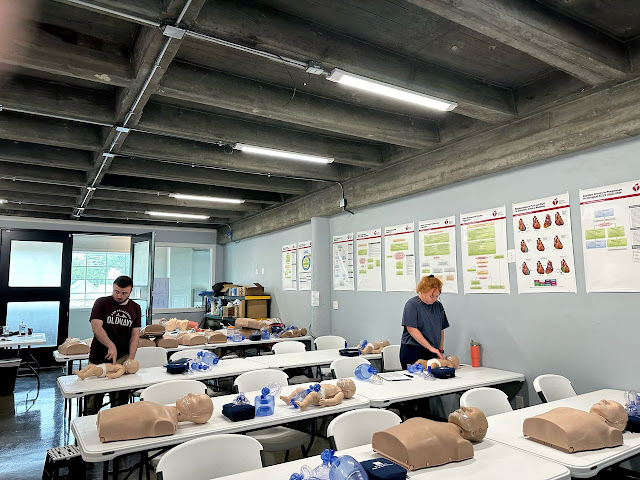Why Every Healthcare Professional Needs Advanced Infant CPR Knowledge
In the critical moments of a medical emergency involving an infant, your skills can mean the difference between life and death. As a healthcare provider, your ability to perform precise, confident infant CPR is not just a professional requirement—it's a lifesaving capability that separates trained experts from bystanders.
The Stakes: Understanding Infant Cardiac Emergencies
Infant cardiac emergencies are rare but devastating events. Each year, hundreds of infants experience cardiac arrest, with survival rates heavily dependent on immediate and expert intervention. Healthcare providers must be prepared to act swiftly, precisely, and confidently.
Unique Challenges of Infant CPR
Infant CPR differs dramatically from adult resuscitation:
Smaller anatomy requires specialized techniques
Different compression depths and rates
Unique respiratory support mechanisms
The psychological stress of treating a vulnerable infant
Comprehensive Infant CPR Techniques: A Detailed Breakdown
Recognizing Cardiac Arrest in Infants
Before initiating CPR, healthcare providers must:
Assess responsiveness
Check for breathing
Determine pulse presence
Understand signs of true cardiac compromise
Proper Positioning and Initial Assessment
Infant Positioning
Place the infant on a firm, flat surface
Ensure the head is slightly tilted back
Maintain neutral neck alignment
Initial Compression Technique
Use two fingers for chest compressions
Compress chest approximately 1.5 inches deep
Maintain a compression rate of 100-120 per minute
Allow complete chest recoil between compressions
Rescue Breathing Protocols
Effective rescue breathing requires:
Gentle mouth-to-mouth and nose coverage
Minimal breath volumes (about 1 second per breath)
Careful monitoring of chest rise
Synchronizing breaths with compressions
Advanced Intervention Strategies
Recognizing and Managing Complications
Healthcare providers must be prepared for:
Potential airway obstructions
Simultaneous trauma assessment
Monitoring for return of spontaneous circulation (ROSC)
Technology and Infant Resuscitation
Modern medical technology offers advanced monitoring and intervention tools that complement manual CPR techniques.
Why Professional Certification Matters
Theoretical knowledge is insufficient. Hands-on, practical training ensures muscle memory and confidence during high-stress situations.
Benefits of Professional CPR Certification
Validated technique mastery
Hands-on practical training
Updated medical protocol understanding
Legal and professional compliance
Confidence in emergency scenarios
CPR Louisville: Your Premier Training Partner
CPR Louisville stands out as an American Heart Association training site committed to delivering exceptional, stress-free learning experiences. Our courses aren't just about certification—they're about empowering healthcare professionals with life-saving skills.
Our Comprehensive Course Offerings
BLS for Healthcare Providers
Advanced Cardiovascular Life Support (ACLS)
Pediatric Advanced Life Support (PALS)
Comprehensive CPR and First Aid Training
What Sets CPR Louisville Apart
American Heart Association certified instructors
Hands-on, interactive training
Stress-free learning environment
Cutting-edge curriculum
Flexible scheduling
Call to Action: Elevate Your Medical Expertise Today!
Don't wait for an emergency to reveal gaps in your skills. Healthcare providers in Louisville, take the next step in professional development and patient care.
Enroll Now with CPR Certification Louisville!
🔹 Secure your spot in our next infant CPR certification course
🔹 Transform theoretical knowledge into lifesaving expertise
🔹 Become the medical professional who makes a critical difference
📞 Contact CPR Louisville Now: 901-438-4200
📍 Location: 894 N Germantown Parkway Suite 1 Cordova, TN 38018
🌐 Website: https://acls-bls-memphis.com/
Spaces are limited. Secure your certification today and be prepared to save a life tomorrow.
Conclusion: Your Skill, Their Survival
Infant CPR is more than a technical skill—it's a profound responsibility. By mastering these techniques, you become a crucial link in the chain of survival, offering hope and potential life in the most critical moments.




